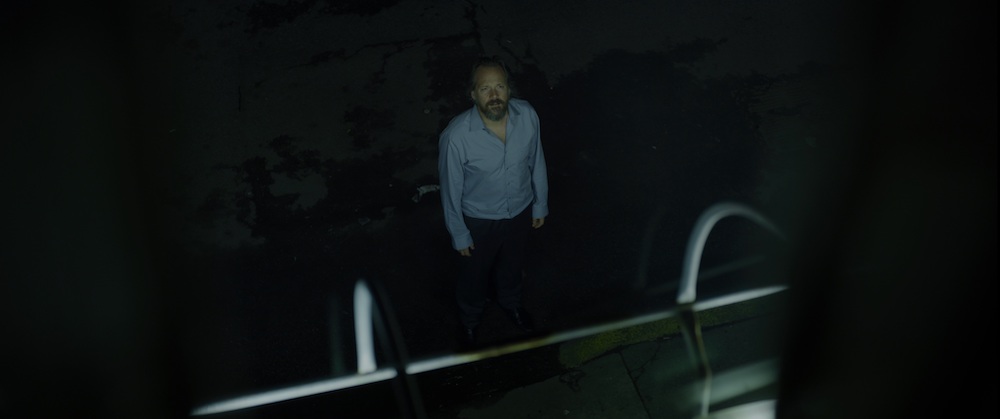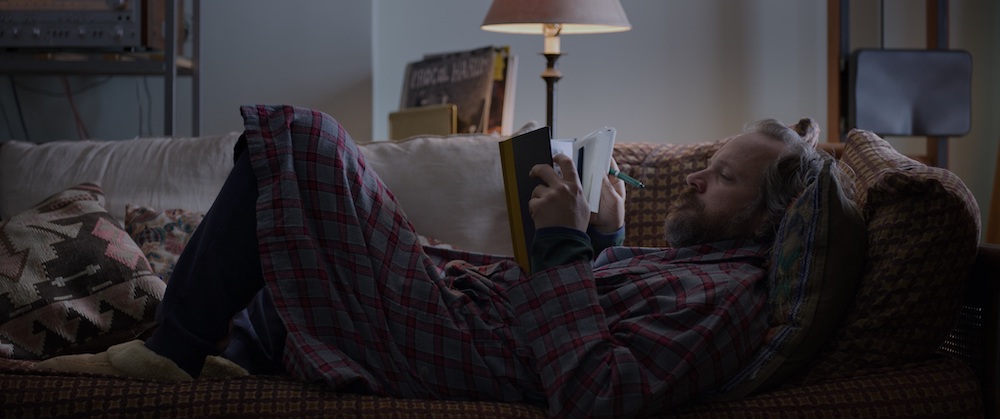Procul Harum’s “A Whiter Shade of Pale” is given a new lease on life in Mexican director Michel Franco’s moving, complex film, full of fine performances.
Saul (a wonderful Peter Sarsgaard), who has early-onset dementia, plays the song constantly. It’s a kind of comfort blanket for him and his fading memory gives those loopy lyrics a new significance.
The film starts with a slightly confounding, busy scene in which Sylvia (an unadorned Jessica Chastain), a care worker in an adult day centre, attends an AA meeting in a Brooklyn church with her teenage daughter Anna (an impressive Brooke Timber, in her first feature film). She’s 13 years sober – ever since Anna, who says how proud she is of her mother, was born.
Sylvia seems anxious, fragile, interacting awkwardly with her younger sister Olivia’s bustling normie family, where Anna fits in well, and obsessively bolting the door and setting the alarm in the apartment she shares with her daughter in a run-down Brooklyn neighbourhood. She’s over-protective of Anna, won’t let her go out with boys or be near alcohol – sounds like a recipe for disaster but turns out not to be – and is obviously tortured in some way.
But Olivia (Merritt Wever) persuades Sylvia to get out for once and come to a high-school reunion. She sits silently, looking grim, while Olivia squeals with excitement and hugs people. Sylvia has no interest in greeting anyone from her past or, God forbid, dancing with any of them. When a smiling, bearded man (Sarsgaard) seats himself beside her, it’s the last straw. She leaves but he follows her on to the D train and to her apartment. He stands in the street looking up (pictured above) at her window, inducing panic in Sylvia. She’s sure she recognises him from school as someone who sexually abused her with his friend when they were 17 and she was 12. In the morning, he’s still there, sleeping, slumped on a tyre (she lives next to a tyre shop), covered in black garbage bags. Is he homeless? Mentally ill?
She leaves but he follows her on to the D train and to her apartment. He stands in the street looking up (pictured above) at her window, inducing panic in Sylvia. She’s sure she recognises him from school as someone who sexually abused her with his friend when they were 17 and she was 12. In the morning, he’s still there, sleeping, slumped on a tyre (she lives next to a tyre shop), covered in black garbage bags. Is he homeless? Mentally ill?
Saul’s brother, Isaac (Josh Charles) and his daughter Sara (Elsie Fisher) come to the rescue and provide answers. And, rather hastily, they ask Sylvia to take on the job of caring for Saul, who, as we’ve seen (though why was he alone at the reunion?), is prone to wander and can’t be left on his own. Saul rages against Isaac’s attempts to control him and it’s clear that things between them are becoming more and more difficult.
Sylvia says no to the job, but then agrees to look after him for an afternoon, presumably so she can confront him about the past. Saul and Isaac live in a large, beautifully appointed brownstone – possibly belonging to Saul, who’s a widower – worlds away from Sylvia’s ‘hood. She and Saul take a stroll in Central Park, where she yells at him about his part in the high-school attack. “I don’t remember,” he says, baffled and benign. And perhaps she doesn’t either. Memories are unreliable, easily hijacked. Olivia does some research and tells her that it couldn’t have been Saul who raped, or co-raped, her as she’d already left the high school – perhaps under a cloud – when he joined it. She goes to apologise to him and takes the caring job. Which soon becomes much more than a job.
And perhaps she doesn’t either. Memories are unreliable, easily hijacked. Olivia does some research and tells her that it couldn’t have been Saul who raped, or co-raped, her as she’d already left the high school – perhaps under a cloud – when he joined it. She goes to apologise to him and takes the caring job. Which soon becomes much more than a job.
In fact it turns into a love affair, one that Anna approves of – unlike Isaac, who’s soon set on keeping them apart. Franco manages to convince you that these two people, damaged as they are, can bring each other happiness, though occasionally this seems far-fetched. They’re in a café and the waitress asks Saul if he’ll have his usual. “Yes,” he replies. What is it? asks Sylvia. “I don’t remember,” he says, and they laugh together in a way that seems a little too glib.
Sylvia’s damage goes deep. She no longer speaks to her brittle mother (Jessica Harper) who lives in Florida, is close to Olivia’s family and who meets Anna for the first time in years at their house. Is Sylvia a fantasist, always accusing people of things they didn’t do, as her mother enjoys telling everyone, including Anna? It’s not until the end that the truth emerges, and it’s as painful as you might expect. But Franco tells us that the power of love wins the day, however fleeting and fragile it may be.















Add comment